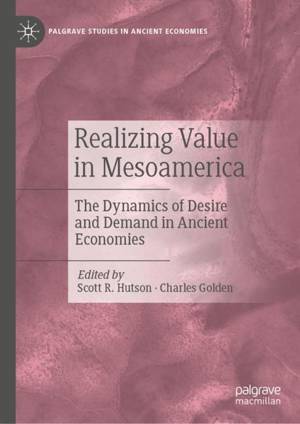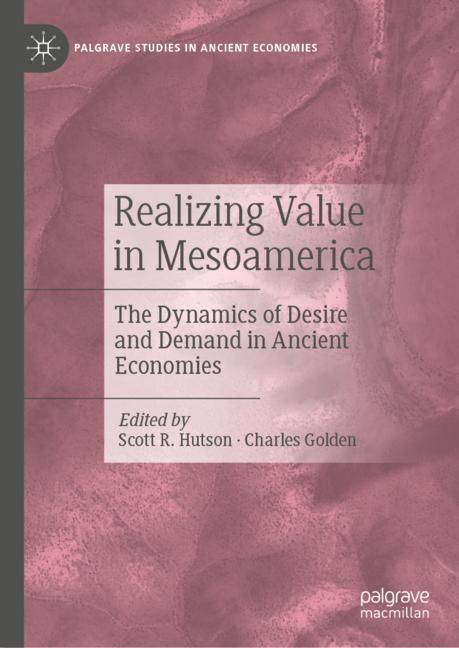
- Retrait gratuit dans votre magasin Club
- 7.000.000 titres dans notre catalogue
- Payer en toute sécurité
- Toujours un magasin près de chez vous
- Retrait gratuit dans votre magasin Club
- 7.000.000 titres dans notre catalogue
- Payer en toute sécurité
- Toujours un magasin près de chez vous
Realizing Value in Mesoamerica
The Dynamics of Desire and Demand in Ancient Economies
Description
This edited collection addresses concepts of value and its impact on economies and economic decision-making in Mesoamerica. It brings together various theoretical and methodological approaches to illuminate the little-studied topic of value in ancient economies.
While scholars increasingly note that tangible objects found in the archaeological record could assume different values, depending on how they were used and circulated, less attention has been paid to how we might infer consensus (or lack of consensus) on how value was determined in past cultures so different from contemporary ones. These contributions show how multiple and conflicting understandings of what is important and meaningful coexist within any society even as moments of exchange create the impression of shared formulations of value. They consider divergences between shared understandings based on systems of beliefs and patterns of practice and the individual decisions of social actors. They also discuss howinequalities in social structures might inform our understanding of value, and how a multiplicity of values might encourage closer inspection of inequality in turn.
The book brings together fifteen chapters focused on many parts of Mesoamerica, including Western Mexico, the Basin of Mexico, Veracruz, Oaxaca, and various parts of the Maya Lowlands, and range chronologically from the Classic period (250-900 CE) to the Spanish Conquest in the early 16th Century. It appeals to those working in archaeology, economic anthropology, economic history, and all those interested in how value can be understood in terms of contemporary cultural and political differences.
Spécifications
Parties prenantes
- Editeur:
Contenu
- Nombre de pages :
- 456
- Langue:
- Anglais
- Collection :
Caractéristiques
- EAN:
- 9783031441677
- Date de parution :
- 02-02-24
- Format:
- Livre relié
- Format numérique:
- Genaaid
- Dimensions :
- 148 mm x 210 mm
- Poids :
- 716 g






